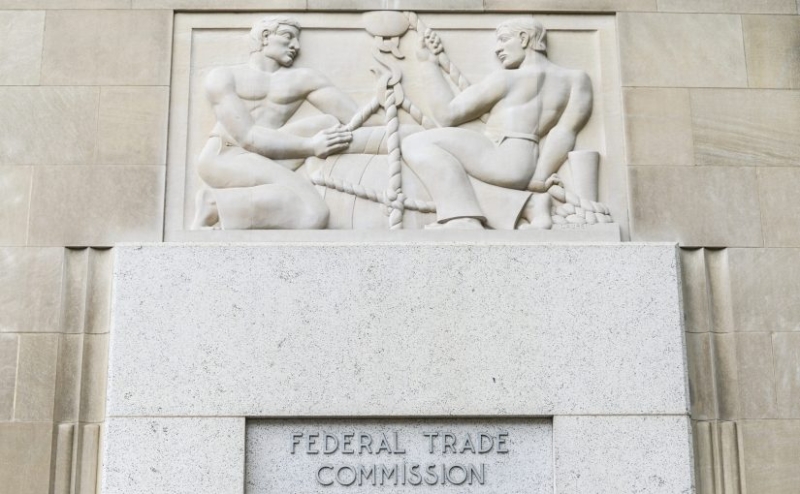
The Federal Trade Commission (FTC) has finalized amendments to the Negative Option Rule, now retitled the “Rule Concerning Recurring Subscriptions and Other Negative Option Programs“ (“Rule”), which represents a significant overhaul of the regulatory framework governing how companies handle subscription services and automatic renewals.
Over the years, the FTC has received numerous complaints about deceptive practices related to negative option programs, prompting the need for updated regulations. The original rule, established in 1973, was focused primarily on protecting consumers from deceptive practices in physical goods such as book and record clubs. However, with the rise of e-commerce, the need for more robust protections for online subscriptions has grown significantly. The FTC’s amendments aim to address these issues and bring more transparency and fairness to this business model.
“Negative option marketing” is a broad term that encompasses a variety of subscription and membership practices. The Rule expands coverage to apply broadly to all forms of negative option marketing in any form of media, including, but not limited to, electronic media, telephone, print, and in-person transactions. It defines the negative option feature as “a contract provision under which the consumer’s silence or failure to take affirmative action to reject a good or service or to cancel the agreement is interpreted by the negative option seller as acceptance or continuing acceptance of the offer.” Negative option programs generally fall into four categories: prenotification plans, continuity plans, automatic renewals, and free trial (i.e., free-to-pay or nominal-fee-to-pay) conversion offers.
Most provisions of the Rule will go into effect 60 days after its publication in the Federal Register, except the provisions regarding disclosure of important information (§ 425.4), consent (§ 425.5) and simple cancellation (§ 425.6), which will become effective 180 days after publication in the Federal Register, thus providing businesses with a period to adapt their subscription practices to these new requirements.
Key Updates
- Clear and Conspicuous Disclosures: The FTC now requires businesses to present subscription terms in a clear and conspicuous manner before any billing occurs. Sellers must provide the following “important information” prior to obtaining the consumer’s billing information: (1) that consumers’ payments will increase or recur, if applicable, unless the consumer takes steps to prevent or stop such charges; (2) the deadline by which consumers must act to stop charges; (3) the amount or ranges of costs consumers may incur, and frequency of the charges; (4) information about the mechanism consumers may use to cancel the recurring payments. Each of the required disclosures must be clear and conspicuous, and failure to provide this information is a deceptive or unfair practice.
- Consent: The Rule requires negative option sellers to obtain consumers’ express informed consent before charging the consumer. The failure to obtain such consent is a deceptive or unfair practice. Sellers must keep or maintain verification of the consumer’s consent for at least three years.
- Click-to-Cancel Requirement: One of the most notable changes in the Rule is the introduction of the “click-to-cancel” provision. This new requirement mandates that companies provide a straightforward and user-friendly method for consumers to cancel their subscriptions. At a minimum, the simple mechanism for cancellation must be provided through the same medium the consumer used to consent to the Negative Option Feature. For example, for services that are subscribed to online, the cancellation process must also be available online and must be as easy as signing up for the service in the first place. This is especially significant because many businesses have been criticized for making cancellation intentionally difficult, such as by requiring consumers to call a customer service line or navigate multiple steps just to cancel their service.
- Removal of Annual Reminder Requirement: During the rulemaking process, the FTC had initially proposed requiring businesses to send consumers an annual reminder of their ongoing subscription services and provide information on how to cancel. However, this provision was ultimately removed from the final Rule. While consumer advocates had supported the inclusion of annual reminders, which would have provided an extra layer of protection for consumer, businesses argued that this requirement would be overly burdensome, especially for companies with large subscriber bases. However, the Rule still mandates that sellers must provide consumers with clear and timely notifications regarding recurring charges.
- Removal of Prohibition on Upsell Offers: Another key provision of the proposed version of the Rule was the regulation of upsell offers during the cancellation process, which would have required sellers to immediately effectuate cancellation unless they obtained the consumer’s unambiguously affirmative consent to receive a save prior to cancellation. Companies often attempt to retain customers by offering lower-priced alternatives or special deals when a consumer tries to cancel a subscription. While these offers are not inherently problematic, the FTC has expressed concern that some businesses use upsell tactics to confuse consumers or prevent them from successfully canceling their service. However, the finalized version did not adopt this amendment. The FTC has determined that revisions to this proposed provision are necessary, for which it would need to seek additional comment. This means that while businesses are free to present alternatives to consumers, they also must provide a clear and direct path to cancelation without requiring consumers to navigate multiple steps or reject numerous offers.
- Enforcement and Penalties: To ensure compliance with the new Rule, the FTC has increased the potential penalties for violations. Businesses that fail to adhere to the new requirements can face significant fines. The FTC has the authority to pursue penalties of up to $51,744 per violation, which could quickly add up for companies with large subscriber bases. This enforcement mechanism underscores the seriousness of the FTC’s efforts to crack down on deceptive subscription practices and provides a strong incentive for businesses to comply with the Rule.
- Relation to Other Laws: The Rule does not preempt state laws that require more protection for consumers. Rather, it reflects the FTC’s intention to align with other laws and regulations, such as the Restore Online Shoppers’ Confidence Act (ROSCA), The Telemarketing Sales Rule, and state-level automatic renewal laws.
Industry Impact
The new regulatory landscape for Negative Option Programs will have several notable impacts on industries that rely heavily on subscription-based revenue models, such as e-commerce, streaming platforms, Software as a Service providers, health and fitness subscriptions, and other online services. Companies will need to reassess their subscription practices, ensure that their cancellation processes are in line with the new requirements, and update their disclosures to meet the transparency standards set by the FTC. Businesses will also need to invest in employee trainings and possibly make changes to their subscription systems and software. This could lead to increased compliance and operational costs as companies try to come into compliance with these new requirements, on top of the potential for lost revenue due to less automatic renewal income.
© 2024 Foley & Lardner LLP by: Christi A. Lawson, Natasha Dempsey of Foley & Lardner LLP For more on the FTC, visit the NLR Antitrust Trade Regulation section



